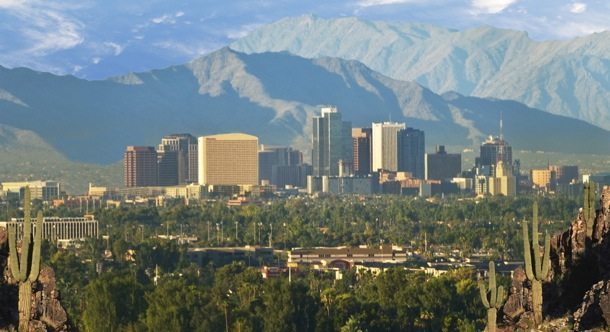These are tough times! Given the rotten economy it isn’t hard to be a pessimist about everything, and government seems to top the list. The November elections saw Congress shift to the Republicans, and yet America as a whole still seems to lack confidence that they are going to make things much better. A recent Rasmussen poll shows that only 28 percent of Americans believe we are headed in the right direction and almost half think our nation’s best days are behind us.
This frustration extends to every level of government.
The city of Phoenix recently has been accused of mismanagement by City Councilman Sal DiCiccio. He continues to promote that Phoenix needs to be completely restructured.
I served with DiCiccio for a couple of years on the Phoenix City Council and consider him a friend, but I was caught off-guard by his attacks. Phoenix has a heritage of being recognized for its quality management. Consider this:
- In 1993, Phoenix won the prestigious Carl Bertelsmann Prize for being one of the two best-run city governments in the world.
- In 1995, Financial World magazine ranked Phoenix the best-managed city out of the nation’s 30 largest.
- In 2000, the Government Performance Project conducted by the Maxwell School of Citizenship and Public Affairs at Syracuse University, along with Governing magazine, named Phoenix as the Best Run City in the United States and gave it the only “A” grade of the 35 cities it studied.
- In 2009, the National Civic League named Phoenix an All-American City for the fifth time. It had previously won in 1950, 1958, 1980 and 1989.
Each of these awards evaluated different areas, such as financial management, performance management, infrastructure management, human resources, capital management, managing for results, use of information technology, and collaborative projects addressing critical issues.
Okay, that’s Phoenix’ heritage, but what about now?
Phoenix has hit the same rocky times as just about everyone else. We could rationalize that in a bad economy in which people are spending less and property values have crashed, it makes sense that municipal revenues, which are based off of these factors, have also dropped. Last budget cycle, Phoenix was faced with a $270 million shortfall. How did they deal with it? They extended a food tax that almost all other municipalities in the Metro Phoenix area already had, asked their employees to take pay cuts (3.2 percent for employees and 6.9 percent for management), and cut services for the remainder. Those service cuts came after a series of budget hearings held throughout Phoenix in which more than 5,000 citizens provided input. It was a balanced approach that didn’t rely on placing the entire burden in any one area.
If the city of Phoenix is guilty of anything, maybe it should have planned better for a rainy day. But if you believe that is true, answer these two questions: First, was this economic recession really a “rainy day” or more like a torrential downpour? That leads to the second question: who did plan for this? We hear all about the nightmares from Wall Street to Main Street. Companies have vanished, banks have failed, and multitudes of homeowners have lost everything. These stories are unfortunately all too common. Almost all governments are having these same problems. Here in Arizona, our state government has been struggling with massive revenue shortfalls. What our Legislature is faced with in the next session makes counties and cities financial problems seem pretty small by comparison.
None of this points to a sudden reversal of Phoenix’s good management practices. In fact, Phoenix now has a General Fund budget that is $79.2 million lower than it was five years ago, even though it has had an increase of 6 percent in the population. Phoenix has cut budgets six of the last seven years in order to live within its means. In the last two years, Phoenix has downsized its employee base from more than 16,000 in 2008 to 14,500 today. Phoenix is at a 40-year low in terms of employees per capita. All of this has happened while staying focused on public safety and maintaining many other vital city services. The crime rate in Phoenix is at a 20-year low. Even Phoenix’ bond ratings are amongst the best in the nation. Phoenix received a AAA from Standard & Poor’s and an Aa1 from Moody’s.
So back to the pessimism that people are feeling. In a bad economy, isn’t it easy to believe that government should be able to rise above it? As we face personal and business crises in a recession, do we really expect that government won’t face the same problems? Many people think that all government is wasteful and inefficient, so isn’t the message that Phoenix is being mismanaged one that is easy to accept?
The city of Phoenix isn’t perfect, and there is always room for improvement. The truth is it is trying to provide the same level of services to more citizens with fewer employees and less money. It reminds me of a saying I once heard: We’ve been doing so much with so little for so long, that we are now qualified to do everything, with nothing, forever.




